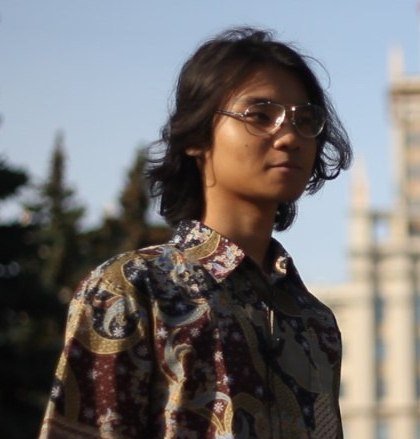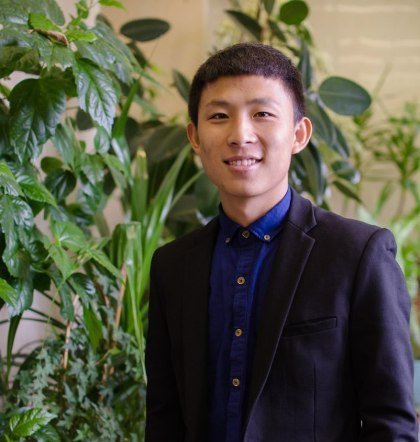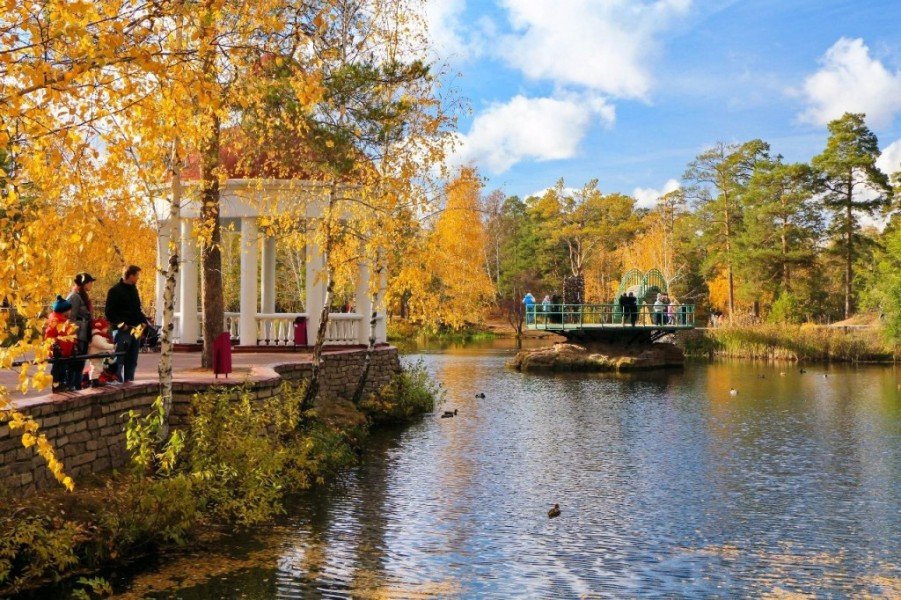Your chance for early admission to a tuition-free Master’s or PhD program at one of the leading universities in Russia.
The International Olympiad of the Global Universities Association for Master’s Applicants is your ticket to enrolling early for tuition-free Master’s programmes in your chosen academic field in one of the leading universities of Russia and the world.
The Open Doors Olympiad is an international project, which gives you a chance to become a student in a Master’s programme at leading universities in Russia and the world. The education is free of charge.
What does participation in the Olympiad give you?
Participation in the Olympiad gives you a chance to study in a Master’s programme at SUSU free of charge.
Eligible for participation in the olympiad ARE:
- Foreign citizens
- Stateless persons
- Russians living abroad
- Individuals with Bachelor’s degrees or those finishing a Bachelor’s programme in 2022/2023
Languages of the olympiad
- Russian
- English
Registration
Portfolio filling
Deadline for portfolio submission
The first round. Grading of the portfolios
Announcement of the first-round results
The second round
Grading of the second round of the competition
Announcement of the second-round results
Appeal process
Announcement of the Open Doors winners and prize-winners in the Master’s track
The third round (for participants of the doctoral track (analogous to PhD))
Announcement of the Open Doors winners and prize-winners in the doctoral track (analogous to PhD)
Rights for Prize Winners of the Olympiad
Winners of the Olympiad, who have a Bachelor’s degree (or higher degree) or studying in the last year of a Bachelor’s programme in the same year as the Olympiad, earn the right to obtain a quota to study in a Master’s programme related to the Olympiad profile at a Russian Federation university (in Russian or English).
Runners-up of the Olympiad can earn the same right during the second stage of quota allocation if there are winners who do not present the necessary documents or who decline the tuition-free education. Quotas are allocated in the second stage according to the ranked list of winners and runners-up within the profile.
Winners and runners-up of the Olympiad can obtain different incentives, as determined by the university organizers of the Olympiad.
Master Programs
- 38.04.01 Economics. International Business
- 38.04.02 Management. Strategic and Innovation Marketing
- 01.04.01 Mathematics. Partial Differential Equations
- 08.04.01 Construction. Digitalization in Architecture and Construction
- 13.04.01 Heat and Power Engineering. Heat Power Engineering
- 13.04.02 Power Engineering and Electrical Engineering. Electrical Power Engineering
- 15.04.01 Mechanical Engineering. Welding Engineering
45.04.01 Philology. Theory and Practice of English
38.04.01 Economics (Economic Analysis and Controlling of an Industrial Enterprise)
38.04.08 Finance and Credit (Financial Markets and Institutions)
40.04.01 Law. Law and Digital Technologies
04.04.01 Chemistry. Chemistry for Environmental Engineering
19.04.01 Biotechnology. Industrial and Environmental Biotechnology
Potential scientific supervisors on the postgraduate course track
Foreign Students Feedback
South Ural State University
SUSU includes 10 institutes and schools, as well as the School of Open and Distance Education, the Institute of Supplementary Education, and the Faculty of Pre-University Education.
Today, 23,000 students from 52 countries from around the world are studying at SUSU. In total, over the university’s history, more than 275 thousand specialists have completed higher education programmes, tens of thousands of candidates of science, and hundreds of doctors of science.
Currently, SUSU offers more than 80 Bachelor’s programmes and more than 100 Master’s and Specialist programmes.
The university has a robust athletic foundation: a track and field arena with two tennis courts, an Olympic-standard swimming pool, the 3,200 m2 Sports Palace with eighteen specialized sports halls for boxing, weightlifting, volleyball, basketball, wrestling, table tennis, and other sports. There is a university recreation camp, sports and health camp, and a children’s camp. Graduates of the university include Olympic champions, eminent masters of sports, and members of the national Olympic teams.
SUSU has 21 student organizations, a Recreation Centre, the Mannequin student theatre, and vocal, instrumental, and dance groups. SUSU holds concerts, thematic festivals, and events: Miss SUSU, Student Spring, Odyssey of the Mind, and the Star Olympiad.
More than 13,000,000 books are located in the collection of the SUSU Scientific Library – the largest one in the region. The university houses 7 museums and the only University TV and radio company in Russia “SUSU-TV”, broadcasting 24 hours a day on the air, on cable networks, and on the Internet. SUSU actively supports and expands its international connections. The university has more than 100 active agreements with international universities, transnational corporations, and the largest industrial enterprises from 35 countries.
System for Helping International Students
Sociocultural Adaptation Centre
Tutors and Volunteers










Opinions: Foreign Students on Studying at SUSU

Max Mueller (Germany)
“I am grateful to SUSU for having the possibility to communicate in Russian and learn it with our teachers”
‒ What did you come to SUSU for?
‒ I came to SUSU to learn Russian language.
I think that Russia is a very interesting country, and Chelyabinsk is a very beautiful city.
Russian people are very good, I have a lot of acquaintances here.
In fact, this is the first time I come to Russia, though I’ve been learning Russian for three years already.
‒ Who do you want to become?
‒ I am studying mining, so in the future I would like to work as an engineer of mining industry.
I haven’t thought yet where exactly to work, in Russia or in Germany, but Russian language will still come in handy.
I am grateful to SUSU for having the possibility to communicate in Russian and learn it with our teachers.

Mahardian Erdino (Indonesia)
– Why did you decide to study in Russia?
– I have an older friend who is also studying in Russia.
He told me that it’s comfortable for foreigners to study in Russia.
So I also decided that I need to study here.
– Why did you choose SUSU?
– I didn’t know before, which university in Russia is better, but when I started studying this question I read that for foreigners SUSU is a very good university.
– Tell us about your impressions of SUSU.
– I like the university.
Of course, sometimes I have difficulties, but my friends always help me.
– What are you planning to do after graduation?
– I don’t know yet, but I think that I will go for master’s degree.
– What are your hobbies?
– I like listening music, reading manga; also I play the guitar and practice rock-climbing.

Wu Wenke (China)
– Why did you decide to study in Russia?
– Because I like Russia, I love Russian history and literature.
In China, when I was at school, I a little bit studied the history and literature and I liked them a lot.
– Why did you choose SUSU?
– I know that SUSU is a very well-known university in Russia.
Many of my friends are studying here.
– Do you like our city?
– Russian people are very intelligent, and I have already got Russian friends.
– What are you planning to do after graduation?
– After graduation I am planning to continue my education at SUSU, because I think that this university suits me best.
– What are your hobbies?
– I like drawing, snowboarding, I used to practice a bit kung-fu in the Shaolin Temple.
Chelyabinsk
Chelyabinsk is the administrative centre of the Chelyabinsk Region; it ranks seventh among the largest cities of Russia. The city was founded in 1736 as a guard fortress, now its territory expands over around 53 thousand hectares. It is located in the centre of Eurasia, on the Eastern slope of the Ural mountains, 1,879 km from Moscow. Chelyabinsk is located in the forest-steppe zone, at a great distance from the seas and oceans. The city has a moderate climate: generally it is characterized as a temperate continental climate. The city is multinational: among the population of more than 1,200,000, most are Russian, and a significant portion are Tatars, Bashkirs, Ukrainians, Kazakhs, Germans, and representatives of other nationalities.
Chelyabinsk is a large industrial mega-city – a business, research, and cultural centre of the South Ural region. It is among the top five strongest industrial cities in Russia. The city is the largest transport hub, connected to the whole Eurasian continent by train and air. Chelyabinsk has an international airport, which offers flights to the largest cities in Russia, as well as neighbouring and distant countries. Federal highways pass through Chelyabinsk, and the Chelyabinsk Branch of the South Ural Railway is the largest transport hub of the Trans-Siberian Railway.
The pedestrian Kirova street, which is also called the Chelyabinsk Arbat, is the jewel and pride of the city. The Yu.A. Gagarin Central Park of Culture and Recreation has become a favourite place to relax for both Chelyabinsk residents and guests. The park is adjacent to the relic pine forest. Other favourites of guests and residents include the A.S. Pushkin City Garden, the Scarlet Fields (Aloye Polye) square, the unique musical fountain located on the Revolution Square, and many other parks and squares.
However one of the city’s most important sights is the Chelyabinsk meteorite, which is currently located in the Regional History Museum. This unique global event – the fall of a meteorite – happened on February 15th, 2013. A 17-meter meteorite with a mass of around 10,000 tonnes flew over the city at great speed, then exploded. It entered the Earth’s atmosphere at around 18 km/s. After 32 seconds, the meteor exploded. Shards fell into the Chebarkul lake, where the largest fragment was later found. The fragment is still being studied by scientists today. Today, Chelyabinsk is a leading industrial centre with businesses in the fields of metallurgy, mechanical engineering and metalworking, instrumentation engineering, consumer goods manufacturing, and food industry. The city has a stable economic position and has great potential for future development. The favourable geographic location and status of administrative centre makes it possible to build a large transportation logistics centre. Today, the socio-economic growth of the city is aimed at creating comfortable living conditions for residents and creating new jobs and businesses, which meet all environmental standards.
Contact Information
South Ural State University
76 Lenin Prospect, Chelyabinsk, Russian Federation
Phone: +7 (351) 272-30-86
E-mail: applicant@susu.ru





